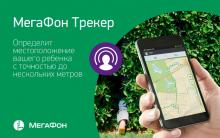Helpline for children and their parents.
What it is?
It happens that a person experiences longing, heartache, resentment, hopelessness, when the problem seems insoluble. Thoughts are confused, loved ones do not understand, and in such a situation you do not know where and to whom it is better to turn for help. In such situations, a helpline can help.
A helpline is a form of psychological assistance for children and their parents, which provides an opportunity for anonymous telephone conversation with a qualified psychologist. This service appeared in Russia on June 7, 1991, and over the past few years "hotlines" have become more and more widespread in the socio-psychological culture of our country.
The principles of the "helpline" are: firstly, it is anonymity, the caller may not give his name, he can also come up with a pseudonym; secondly - confidentiality, no one will know about this conversation and its contents, except for the consultant and the caller; thirdly, the caller can end or interrupt the conversation at any minute, for this it is enough to hang up; fourthly, this is a round-the-clock work of the "helpline", you can call at any time of the day or night. These principles allow the caller to feel free to present personal problems and to contact this service when needed from any convenient location.
You can contact the "helpline" with various questions and problems, for example: family problems (relationships with parents, children), on issues requiring the protection of the rights of the child, problems in relations with peers, educational and school issues, adaptation problems, self-acceptance, gender issues, health issues, etc. Also, anyone can call the "helpline": age, nationality, gender, health status of the caller is not important.
Throughout the Republic of Buryatia there is currently a toll-free hotline 8-800-2000-122, you can also call 55-38-16. Teachers-psychologists and a doctor work on this line. A “helpline” enables a person experiencing any difficulties to receive support, to be understood and accepted, to understand a difficult situation for him in a calmer environment and to take concrete steps.
MBOU "CDiK" Social teacher A.N. Afanasyeva
Download:
Preview:
Helpline for children and their parents.
What it is?
It happens that a person experiences longing, heartache, resentment, hopelessness, when the problem seems insoluble. Thoughts are confused, loved ones do not understand, and in such a situation you do not know where and to whom it is better to turn for help. In such situations, a helpline can help.
A helpline is a form of psychological assistance for children and their parents, which provides an opportunity for anonymous telephone conversation with a qualified psychologist. This service appeared in Russia on June 7, 1991, and over the past few years "hotlines" have become more and more widespread in the socio-psychological culture of our country.
The principles of the “helpline” are: firstly, it is anonymity, the caller may not give his name, he can also come up with a pseudonym; secondly - confidentiality, no one will know about this conversation and its contents, except for the consultant and the caller; thirdly, the caller can end or interrupt the conversation at any moment, for this it is enough to hang up; fourthly, this is a round-the-clock work of the "helpline", you can call at any time of the day or night. These principles allow the caller to feel free to present personal problems and to contact this service when needed from any convenient location.
You can contact the "helpline" with various questions and problems, for example: family problems (relationships with parents, children), on issues requiring the protection of the rights of the child, problems in relations with peers, educational and school issues, adaptation problems, self-acceptance, gender issues, health issues, etc. Also, anyone can call the "helpline": age, nationality, gender, health status of the caller is not important.
Throughout the Republic of Buryatia there is currently a toll-free hotline 8-800-2000-122, you can also call 55-38-16. Teachers-psychologists and a doctor work on this line. A “helpline” enables a person experiencing any difficulties to receive support, to be understood and accepted, to understand a difficult situation for him in a calmer environment and to take concrete steps.
September 1, 2014 marks exactly four years from the moment when a single one began its work on the territory of Russia - free for children, adolescents and their parents. This service was organized by the Foundation for Supporting Children in Difficult Life Situations together with the constituent entities of the Russian Federation.
The unified children's helpline unites all regional organizations providing psychological assistance to children, adolescents and adults. All trust services operating on the territory of the Russian Federation are connected to a single number: 8-800-2000-122 , through which help can be received by children, adolescents and adults located anywhere in Russia.
Why do you need a helpline
Parents who have encountered difficulties in the process of raising a child or who cannot find mutual understanding with their children often contact the children's helpline. Experienced psychologists are ready to provide assistance to any family member, regardless of the problem with which they are asked. The single helpline will also help mothers and fathers who do not know how to answer their child's questions correctly and how to behave with him in certain situations.
Qualified specialists will listen to a child or an adult and help him understand the current situation, regardless of what exactly he had to face. For psychologists of a single children's helpline, there are no unimportant problems, and all the questions they are asked about are always significant. The primary task of the telephone counselor of the helpline is to relieve the stress of the child, teenager or parent who has contacted him by providing him with psychological assistance, and in some cases - convincing him of the need to seek help from a person from his environment whom he trusts.
Why you shouldn't be afraid to call the helpline
Why are children afraid to call? Typically, these barriers are shyness, withdrawal, and fear that the parents will find out or the call will be reported to the school. Parents should build the child's confidence in psychological help. But often they are the ones who consider the helpline service to be a kind of controlling body.
Many parents are afraid to call the children's helpline, because they believe that after their appeal, the intervention of the guardianship authorities is possible, but such fears are not justified. All hotline consultants maintain anonymity and confidentiality and do not transfer information about the identity of the person who applied to the special services, except in rare cases when it comes to a threat to the life and health of the child.
There is also a prejudice among some parents that the interaction of their children with a psychologist will lead to a loss of parental authority. Rather, such a parental position indirectly testifies to the unhealthy situation in the family and to the parents' fears that some intra-family problems may come to light. It is necessary to understand that the helpline is not a threat, but help and support, contacting it helps to restore parent-child relations.
Today the children's helpline is a real lifesaver for children and adolescents who find themselves in a difficult situation and want to get answers to their questions, as well as for parents who do not know how to help their children.
Memo to children, adolescents and their parents
If you find yourself in a difficult situation, are faced with the inability to solve any problems in family relationships or relationships with peers, have become a victim of physical, sexual or psychological abuse, do not keep everything to yourself! Just one call to a single children's helpline 8-800-2000-122 - and you will receive advice from a qualified specialist who will tell you what to do in your situation, help relieve mental stress and provide psychological assistance on any issue. And all this in full anonymity, confidentiality and absolutely free.
Specialists of the children's helpline provide assistance to all those in need absolutely free of charge, which allows all children, adolescents and adults to apply there, regardless of the financial situation of their family. Calls can be made from both mobile and landline phones.
Victoria Gritsuk
In the life of any person, situations can occur when he is left alone with his difficulties, which seem unbearable, while consciousness does not see a way out of the situation. The telephone helpline is sometimes the only opportunity that gives hope that everything will work out.
What is a helpline?
The helpline is one of the most significant social services for the population, providing support in the form of psychological assistance, and depending on the problem, a specialist can switch a person to a conversation with a law enforcement, medical specialist or social worker. Why do you need a helpline? Social experience shows that there are not always close people near a person, sometimes a person is generally alone for a number of reasons, and the situation with him may threaten his existence.
Helpline - history
Today the helpline is a very developed and constantly improving structure that provides various kinds of social support. The prehistory of the service dates back to the 50s. XX century, when the priest of Clemenswood Baptist Church in Yolford, Peter West, together with a colleague from London, also a priest Chad Wara, organized a telephone help service for people on the brink. None of the monks expected that flurry of calls that would fall on them like an avalanche - there were a lot of suffering.
Ten years later, in 1963 in Australia, the head of the central Methodist line, Alan Walker, organized a helpline and hotline called the Life Line, which eventually became a worldwide network of 200 support centers in 12 countries. Serving people is based on Christian principles, and the motto is the slogan: "Help is as close as the telephone." Life Line and similar organizations have supported millions of people and prevented suicide attempts.
All over the world, the helpline provides emergency assistance to people in difficult situations around the clock, in different countries, the name of the telephone service bears its name:
- Crisis Lines (USA);
- "Hope" (Spain);
- Spiritual Help (Germany);
- "Outstretched Hand" (Switzerland);
- Helpline (Russia).

How is the helpline regulated?
What document regulates the helpline? The telephone assistance service to the population is regulated by the normative legal acts of international and Russian legislation:
- UN Convention on Human Rights;
- The Constitution of the Russian Federation;
- UN Declaration on the Rights of Persons with Disabilities;
- World Declaration on the Survival, Protection and Development of Children;
- Federal Law of 02.05.2006 No. 59-FZ "On the Procedure for Considering Applications of Citizens of the Russian Federation";
- International Code of Ethics for the Psychologist.
How does the helpline work?
Why do we need a helpline - those for whom everything is clear in life, calmly and measuredly are unlikely to ask these questions, but those whose black streak of life has knocked the soil out from under their feet and they have no other option than to dial the number rescue service experienced themselves, which means timely support, albeit a stranger at the other end of the line. Specialists are carefully selected, attend various trainings, are constantly trained in new methods of counseling and providing emergency services. Skills that a helpline specialist should have:
- the ability to listen;
- (empathy);
- the ability to ask open-ended questions.
During a telephone conversation, the specialist:
- acts anonymously, under a pseudonym, and the location of the helpline service is also classified - all this is thought out for the safety of service employees;
- reminds the person asking for help that the call is confidential and anonymous, this increases the level of trust;
- redirects or connects a person to the helpline that is more relevant to him at the moment;
- applies psychological techniques to reduce aggression in unbalanced people and stabilize the psycho-emotional background;
- offers to call the help desk in severe cases.
Helpline - psychological help
Helpline - psychological assistance is provided free of charge, without exception for everyone: both adults and children. Assistance is organized so that during a call to a single number, the region from which the call was made is determined and redirected to the hotline specialists of this region. Emergency psychological assistance will be provided immediately, so in any situation the main thing is not to give up and take advantage of this opportunity. A small child, a teenager, and an adult will be treated with all seriousness and willingness to help.

Helpline for children
Helpline - psychological assistance to children, the service has been successfully operating since 2010. Helpline for children and adolescents in the Russian Federation - 8 800 2000 122 - service specialists help in different situations. What is considered a mere trifle, an annoying accident for an adult, for a child can look dangerous, frightening and insoluble, because children do not have much life experience and cannot cope with many things on their own. What problems and emotional experiences do children address by calling the helpline:
- quarrel with parents;
- violence in family;
- sexual harassment;
- the child is left alone at home and is scared, afraid to fall asleep or the darkness;
- the child is faced with a problem that he cannot tell his parents about because of shame or punishment.
Helpline for teens
Adolescence is a difficult test for a person, no longer a child, but not yet an adult, a hormonal storm gives rise to bursts of impulsivity, aggression or, on the contrary, tearfulness, feelings of misunderstanding by others and an increase in depression and emptiness. All over the world, an anonymous helpline has helped more than one thousand teenagers and experts have prevented a large number of suicide attempts. What problems do the younger generation face more often:
- unrequited love;
- lack of understanding or indifference of parents;
- physical and sexual abuse at school or at home;
- peer bullying ();
- thoughts of suicide;
- the problem of communicating with peers due to shyness, physical flaw;
- early sexual intercourse and the ensuing consequences that are scary to discuss with parents (sexually transmitted diseases, possible pregnancy).
Helpline for women
Women are patient creatures, even in the case when silence and patience can turn into a real tragedy, female stereotypes that “they can't stand dirty linen in public” and “beats means love” are very indicative here. Such women generally behave "quieter than water, below the grass." Hotline for women who have experienced domestic violence 8 800 7000 600. During violence, the will of a woman is suppressed and bodily harm is inflicted. It is important to realize that the husband is unlikely to improve, the beating will be systematic.
A helpline call can be the first step towards liberation from violence, a specialist will support and tell you how to properly contact law enforcement agencies and what is needed for this. For women who find themselves in a difficult situation when there is nowhere to go from a despot husband, while she is still with a small child or is pregnant, specialists have a list and numbers of organizations where victims of violence will be provided with shelter and the opportunity to earn money.

Health helpline
Medical helpline - this service is somewhat different from the anonymous psychological service and is more designed to ensure the proper quality of medical services and prevent patient neglect. If a person has received inadequate assistance or has been mistreated by medical personnel, or it is important to find out their rights to provide one or another type of medical assistance, you can contact the health care helpline at your place of residence.
Drug treatment helpline
The narcological helpline for adults is a consultation by telephone of a psychiatrist-narcologist who will answer all questions, advise on what to look for in order to understand whether a child or an adult is taking drugs or not. The Narcological Service Helpline also provides support in the following matters:
- need help in accepting the issue of registration, hospitalization, and treatment;
- a close person (husband, friend, child) needs the help of a narcologist, but you don't want to make it public;
- a family member of an addict needs psychological support, because this struggle for health and a return to normal life takes all the strength;
- the person realized that he could no longer get out of drug and alcohol addiction on his own.
Working on the helpline
The helpline - psychological assistance to adults and children - is a socially significant service, but the specialists themselves sometimes feel devastated, and they have periods of feeling that they are useless and the futility of the work they are doing, especially if the caller implements the intention to commit suicide. Professional burnout is a frequent occurrence here, and rare specialists have worked in this service for many years - they are unnamed, but they have many saved lives on their account.
What is useful to know about the social and psychological assistance service
"Helpline"
What is a Trust Phone?
The history of psychological assistance services by telephone dates back to the early twentieth century, when in 1906, the American pastor Warren organized a league in New York, the purpose of which was to provide moral support by telephone.
In 1953, English priest Chad Wara, founder of the Samaritans Volunteer Movement, a society for helping those in need of participation, created a friendly helpline for suicidal people.
In 1964, a voluntary telephone help service was organized in Czechoslovakia, and in 1967 in Poland. It was then that the name for such services appeared - "Trust Telephone".
In Russia, Telephones of Trust appear for the first time in 1981 and are initially created as medical and psychological services to prevent suicide. However, it gradually became clear that people turn to the Telephones of Trust not only on the verge of a choice between life and death, but also when they are experiencing love problems, when it is necessary to make a vital decision, when conflicts occur in the family and at work, when they want to get out of the vicious circle repeated failures, etc.
By 1991, 25 Trust Telephones were officially registered in Russia. And in the same year, the Russian Association of Psychological Emergency Telephones (RATEPP) was established. Calls to the Trust Phone from landline phones are free.
The main goal of the Telephone of Trust service is to provide psychological assistance to citizens regardless of their social status, to strengthen psychological health and an atmosphere of psychological security of the population, incl. children and adolescents.
To achieve this, each Trust Phone service performs the following main tasks:
provides each applicant with a confidential dialogue;
helps subscribers "collect" their creative, spiritual, physical and mental strength to get out of a crisis state;
expands the range of acceptable means for subscribers to independently solve problems and overcome existing difficulties, strengthens self-confidence;
provides psychological support for experiencing a crisis, as well as for its prevention and rehabilitation after a crisis;
informs citizens where and how, in addition to contacting the Trust Phone, they can receive psychological assistance in resolving their problem.
The main method by which the tasks of the Trust Telephone service are carried out is psychological counseling over the phone.
2. What are the working conditions for the "Telephone of Trust"?
Anonymity - a client who has applied for psychological help on the Trust Phone is not obliged to give his name, place of residence and other information that, in his opinion, has no relation to the case.
Confidentiality - the subscriber of the Trust Phone can be sure that any information told by the client about himself or his loved ones will not be made public and will not be transferred to third parties.
Unconditional customer acceptance - in a conversation with a subscriber, the employees of the Phone of Trust always proceed from the fact that a person has the right to be what he is. A client seeking psychological help will not be judged, criticized, or taught to live.
Confidential conversation - the sincerity of the client and his trust in the consultant is a guarantee that in the course of the conversation the subscriber will determine the reasons for his difficulties and specific steps to overcome them.
In what cases do they turn to the "Trust Phone"?
If:
You feel that worries, doubts and heartache have become too frequent guests in your life lately.
Something happened in your life that cannot be changed, and you do not know how to accept it.
The world seems to be hostile, and people do not understand and reject you.
Relationships with people only bring you frustration and pain.
Conflicts and failures are repeated, you do not know how to get out of the "vicious circle".
You have no one to discuss your problems with, a difficult situation that has developed in your life - we can not always count on the understanding of even the closest people (parents, friends, etc.).
4. Do I need to prepare for a call to the Trust Phone?
You don't have to prepare at all to contact the Trust Phone. Just dial the phone number and talk about what you are experiencing and your problem.
When the psychologist picks up the phone:
Say hello and make sure that you are on the Trust Phone.
State your name if you see fit.
Provide the purpose of your call. For example: "I have a problem, I would like to deal with it."
Get the consultant's consent. For example: "Yes, of course, I am listening to you."
Begin to explain your problem.
The consultant will ask questions that are best answered sincerely.
And then together you will analyze and think about how best to solve the problem.
Remember, that:
You have about an hour to spare, so try to speak to the point.
If during the first conversation it was not possible to outline ways to solve the problem, discuss the date and approximate time of the next call to continue the conversation.
Call if:
You need help, support and understanding.
You feel that worries and doubts have become frequent guests in your life lately.
The difficulties seem insurmountable to you, and you experience helplessness and despair.
Something happened in your life that cannot be changed, and you do not know what to do.
Relationships with people only bring disappointment and pain.
Life seems meaningless to you.
Young friend,
you have a difficult life situation, or you ask yourself a question:
how to cope with problems, how to cope with loneliness, jealousy,
loss of a loved one, get rid of shame or fear?
We are waiting and ready to help you!
all-Russian children's helpline:
8 800 2000 122
Or
6-28-19
around the clock
You're a teenager!
Does your problem seem insoluble?
You are experiencing mental pain, longing, resentment, hopelessness.
Do not know where and to whom to turn for help?
Call the emergency psychological help phone
2-20-03 - Commission on minors' affairs and protection of their rights (Volgina Lyudmila Leonidovna)
3-05-99 - Agency for Family and Children Affairs of the Republic of Tyva (Khovalyg Natalya Kuske - Karaevna)
3-23-47 - department of guardianship and guardianship (Andalaeva Larisa Serenovna)
02, 3-47-85 - GOVD of Kyzyl (Kuular Timur Borisovich).
2 - 34-04 - State budgetary institution of the Republic of Tyva Republican center for social support of families and children
(Ondar Ilya Kylyn-oolovich)
2 - 42-55 - Department of Social Protection of the Population in Kyzyl under the City Hall, Department for Family and Children Affairs (Tumat Roliana Kongarovna)
5-33-16 - State budgetary institution of the Republic of Tyva Center for social assistance to families and children in Kyzyl (Sendazhi Ruslana Nikolaevna)
Daily, around the clock and professional psychologists helpline
ready to help you understand a difficult life situation, advise on relationships with peers and parents, on highly intimate issues, AIDS and drug addiction.
Call and they will definitely help you!
The call is anonymous and confidential
Remember: there are no hopeless situations!
Hello! Trust Phone Says!
I want to tell you about what communication on the Trust Phone is. On the one side of the invisible line of communication, a person with his misfortune, on the other side - a counselor psychologist. Any communication, including by phone with a psychologist, is a Meeting of two people. If we reduce all the cases of appeals to the TD to one capacious formula, then we can say this: a person calls the Trust Phone to be heard, so that someone is nearby, involved in his misfortune, so that someone will help him to gain strength and courage to cope with a problem.
As in any other Meeting, it is very important that people are open to each other and are sincere, trust and feel safe. Psychological service "Helpline" guarantees anonymity and confidentiality of communication - that's what security we are talking about. And what about trust? Whom do we trust our confession to?
Higher education and training under the special program "Psychological counseling by phone" is an indispensable condition for working in the team of the Telephone of Trust. At the heart of any serious business lies a scientific theory, which determines the further directions of development of practical activity. The theoretical foundations of psychological counseling over the telephone were laid by the American psychotherapist Carl Rogers, the founder of the humanistic direction in psychology. Translated from the language of science into the language of ordinary communication, the essence of the methods of humanistic psychology can be defined as follows:
each person is unique;
the person himself has the necessary resources to solve any problem;
a psychologist can help open them;
in the work of a psychologist, benevolence, acceptance or, more precisely, ACCEPTANCE of another person, no matter how different he is, are important.
A TD consultant can be a person who has personal qualities and professional training appropriate for this job. It requires tact, flexibility, patience, striving for development and self-improvement, observation, attentiveness, responsibility, benevolence, good health and a sense of humor.
If, suppose, that all this is with you, and you decide to become a consultant at the TD, then take into account that they will not take your word for it, but they will check and how! After interviewing and testing, your opinion of yourself may change. One must be prepared for the fact that before helping others, it is quite possible that one must help oneself. In a word, the Trust Phone is benevolent, strict and fair.
The "Trust Phone" mode of operation is round-the-clock.
Initially, the TD was focused on working with adolescents and youth, but now almost everyone turns to us: teenagers, their parents, youth, elderly people.
We accept all calls!
It is important to understand that a counselor is not a substitute for a close friend, even if you call him many times every day. A helpline consultant is not a magician, he will not wave a magic wand so that in one second everything becomes clear, simple and easy. He will not get ready-made advice-answers for all occasions out of a big bag for you. If we remove doubts and illusions, what will remain in the "bottom line"? The caller to the Trust Phone takes an important step: from his thoughts he goes on to tell about himself and the problem aloud. Communication with a TD consultant contributes to the story of what worries a person, helps to reduce anxiety, anxiety, fear. It is live communication that pushes a person first to analyze, and then to understand what is happening. Understanding the situation, in turn, opens up options for overcoming the crisis.
Trust Phone 8 800 2000 122
Emergency psychological help to everyone who finds themselves in a difficult life situation and wants to find understanding and support. Round the clock. Anonymously. Is free.
Started work in the Republic of Tuva
helpline
(emergency psychological assistance service)
with a single all-Russian number
8-800-2000-122
or 6-28-19
The Helpline's activity is to provide children and their parents (persons replacing them) with emergency counseling and psychological assistance by telephone, including in cases of cruelty and violence against children, including cases of sexual violence, both in the family and outside it.
The consultations are carried out by psychologists of the highest category, who specialize in working with families and children.
The helpline works every day, seven days a week, around the clock, anonymously, free of charge for subscribers of landline and mobile phones in the Republic of Tyva











The charging mechanism of the Samsung Gear Live smartwatch is very easy to damage How to charge the Samsung Gear s smartwatch
HTC One Dual Sim smartphone review: not the only one
Connecting to a router to enter the settings
Tips on how to reinstall Windows on your HP laptop yourself